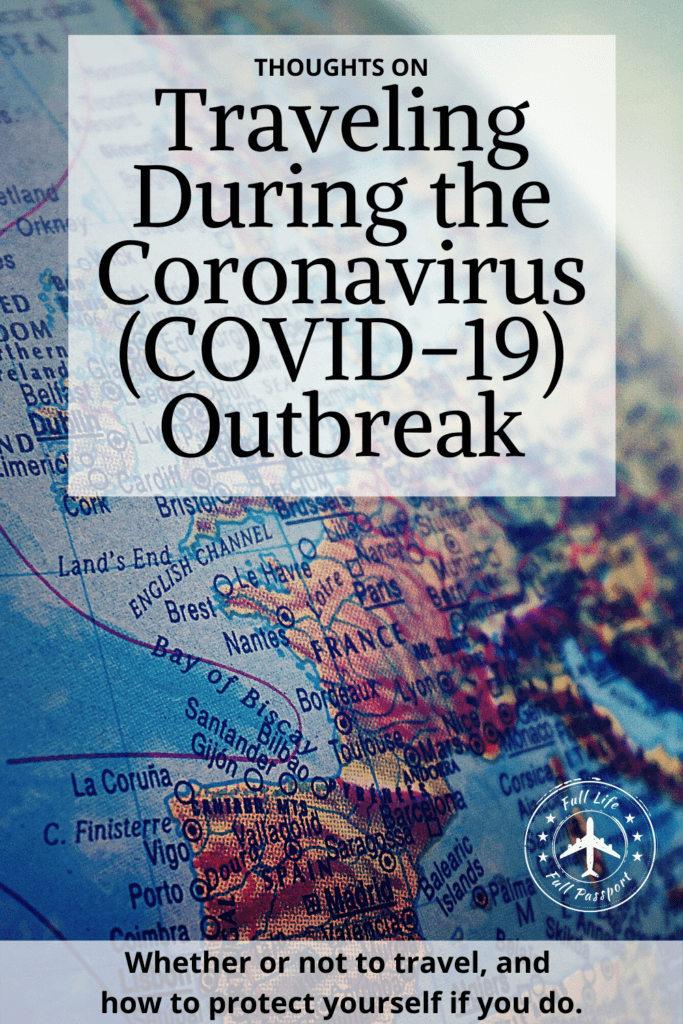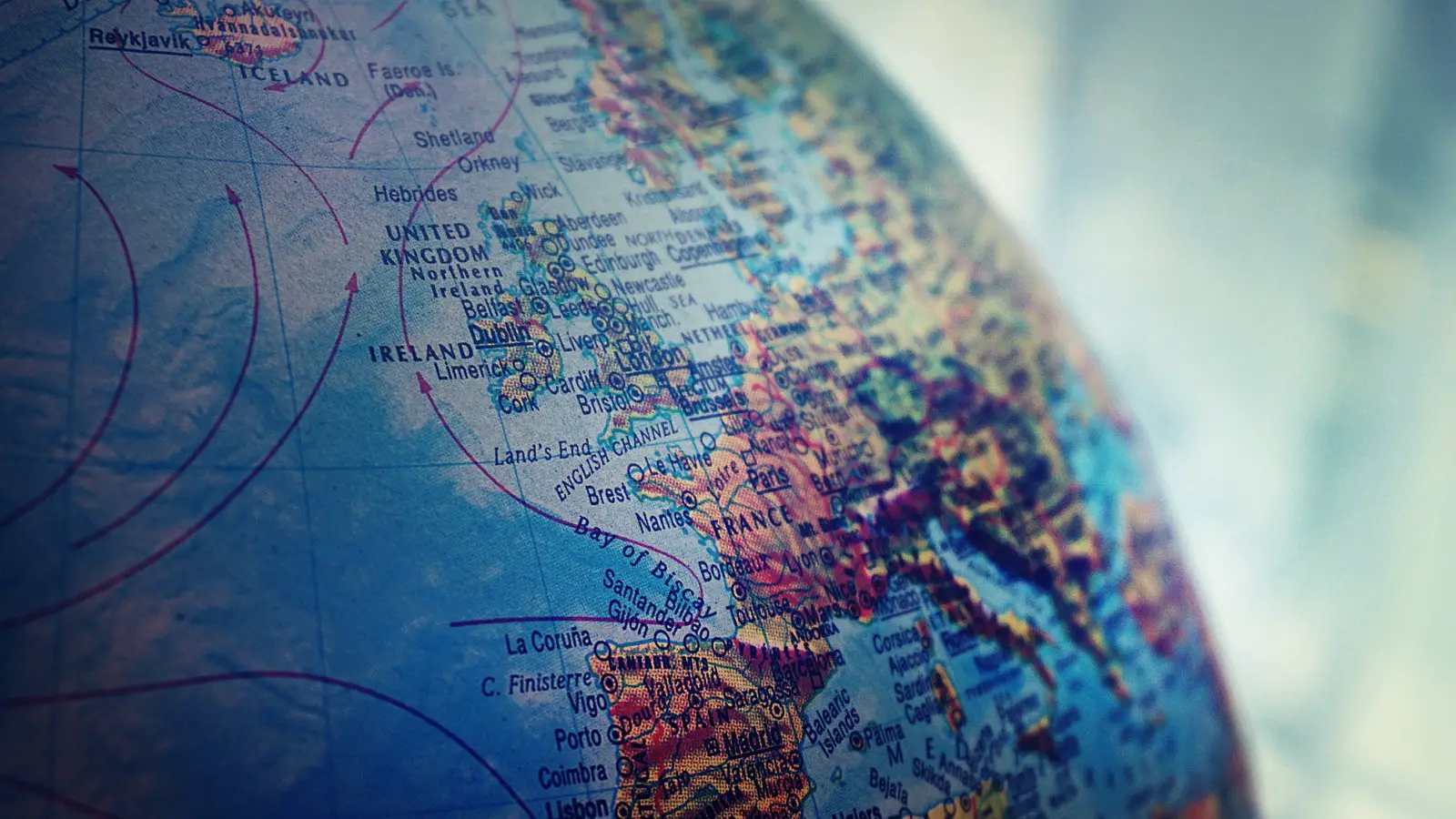LAST UPDATED: March 19, 2020. For more recent COVID-19 travel news, please refer to this post.
The US State Department has issued a global health advisory warning US citizens not to travel internationally under any circumstances. Americans are also advised to return home if currently abroad and it is possible to do so.
Additionally, estimates have come out that put the potential economic impact of COVID-19 on the travel industry at over $820 billion: six times more damaging than 9/11.
ORIGINAL POST: March 14, 2020
Unless you’ve been hermited away in a cave somewhere for the past few months, you’re probably aware of the coronavirus (COVID-19) outbreak. First identified in Wuhan, China, COVID-19 was officially declared a pandemic by the World Health Organization on March 11. As of this writing, over 125,000 cases have been reported in 117 countries and regions, with over 4,600 deaths (source). The emergence of this new disease has wreaked havoc on the world economy and people’s daily lives.
The COVID-19 outbreak (which I will also call “the coronavirus” in this article since that’s how it is largely being referred to in the popular lingo) has hit close to home for me for a number of reasons, not the least of which is its impact on the travel industry. January and February saw an unprecedented boom in the travel planning side of Full Life, Full Passport, which means that I have numerous clients whose vacations now seem to be in jeopardy. Some are barely concerned, while others have asked whether they should cancel their vacation altogether.
As someone who promotes the benefits of travel and aims to facilitate it for others, I also feel that I can no longer sit idly by without commenting on the situation and providing what small guidance I can offer. Below is my attempt to do so, with the large caveats that this is a situation that is changing almost daily and that I am neither a doctor nor a member of any health organization. The information below comes from the research I have done on behalf of myself and my clients as well as conversations with healthcare providers, but the decision as to whether, where, and how to travel should ultimately be up to you and your own physician(s).
I will update as I am able and as the situation continues to unfold. In the meantime, please don’t hesitate to reach out if I can help in any way.
In This Article
About the Coronavirus (COVID-19)
What is the coronavirus?
Why is the coronavirus such a big deal?
Why are events being canceled and people being quarantined?
Where can I get reliable information on the coronavirus?
The Coronavirus and Travel
How is the coronavirus outbreak affecting travel?
Should I travel during the coronavirus outbreak?
What should I do if I already have travel plans?
How can I stay healthy while traveling?
(Note: some of the links in this article may be affiliate links, which means that I may earn a small commission from your purchase at no additional cost to you. Thank you for supporting Full Life, Full Passport! You can find the full disclosure here.)
About the Coronavirus
What is the coronavirus (COVID-19)?
COVID-19 is the disease the results from a new strain in a large family of viruses called coronaviruses. Other coronaviruses include SARS (Severe Acute Respiratory Syndrome) and MERS (Middle East Respiratory Syndrome), as well as the common cold. The most common/telling symptoms are fever, cough, and shortness of breath.
Why is the coronavirus such a big deal?
The fact that the coronavirus has spread so rapidly has given governments and medical professionals a cause for concern. It is also more deadly than the normal, seasonal flu, especially for the elderly and those with underlying conditions. That said, the risk of contracting COVID-19 is still low for most people and areas of the world, as is the risk of dying from the disease.
Why are events being canceled and people being quarantined?
One of the biggest concerns with regard to the coronavirus is preventing a full-scale outbreak, as the medical systems of most countries are not prepared or equipped to deal with an epidemic. That’s why you’re seeing so many aggressive preventative measures being taken. It’s all about “flattening the curve,” or reducing the height of the peak of the epidemic to avoid overwhelming the system. This also ensures that people who do contract the virus can receive proper care.
Where can I get reliable information about the coronavirus?
Your best bet is to get your information directly from bodies like the World Health Organization and the Center for Disease Control. Both can be relied upon for straightforward, factual, up-to-date information. It’s hard to tell where the line exists between the truth and sensationalism when it comes to politicians and the news media, and for goodness’ sake, don’t rely on what you see shared on Facebook. (No, the virus didn’t come from Chinese people eating bat soup.)
The Coronavirus and Travel
How is the coronavirus outbreak affecting travel?
The COVID-19 pandemic has already had a huge impact on the travel industry, and it’s most likely only going to get worse. Italy, one of the hardest-hit countries, is completely locked down. Broadway is dark and New York City has banned all gatherings of more than 500 people. The Trump Administration announced on Wednesday that most visitors from Europe will be barred from entering the United States for thirty days. And then there are the people who have been stuck on quarantined cruise ships for weeks on end.
In short, it’s a bit of a logistical mess, with a lot of ambiguity and fear thrown into the mix. The threat of quarantine or not being able to get home is definitely deterring a lot of people from considering or undertaking travel at this time.
While all of this is disappointing or annoying for travelers, the real negative impact is on small businesses and local economies that depend on the tourism industry. Restaurants find themselves with more open tables than filled ones during what should be the dinner rush. Hotels are filled with empty rooms. Tour operators sit idle. Travel agents have seen business slow to a standstill. Even social media influencers are feeling the pinch.
Worse, many businesses are now facing demands for refunds, creating a sizeable outflow of cash at the same time that income is plummeting. Friends of ours who had to cancel a long-awaited trip to Italy were begged by one hotel to take a credit instead of a refund.
Even if this outbreak ends quickly, the effects will be felt for a long time as people work up the confidence to travel again and go through the process of making their travel plans.
Should I travel during the coronavirus outbreak?
I’ve been wrestling with this question a lot since things started to escalate, both for myself and my vacation planning clients. My current advice is to not rush to cancel any trips that you have planned for June or later, but to keep an eye on the situation and make sure to purchase travel insurance to protect your trip. (More on that later.)
It may be wise to consider canceling or postponing any travel in April or early May. The current trajectories of both the spread of the virus and government responses to it seem to point to things getting worse before they get better. A doctor friend recently told me that he feels it’s probable that the next couple of months will be rough, with an increasing number of confirmed cases and social restrictions. Afterward, though, things might die down a bit as the situation comes more under control and the normal cold and flu season ends for the year. This doesn’t mean that no one will catch COVID-19 as the weather warms up in the Northern Hemisphere, and it certainly could come roaring back as the weather cools in the fall. It just means that we might get a bit of a reprieve.
Again, this is all conjecture and subject to influence from innumerable factors. Your best bet is to stay vigilant and informed. Currently, the WHO is not advocating for the cancellation of any travel and long as precautions are taken.
What should I do if I have planned travel for the year or want to take a vacation in 2020?
Now, more than ever, three things are absolutely critical if you’re planning to travel within the next year: purchasing travel insurance, supporting small, local businesses, and doing your best to stay healthy and stop the spread of this and any other disease. More on the third later, but first:
Purchase travel insurance. I wrote at length about the importance of travel insurance following the abrupt closure of British travel company Thomas Cook back in the fall. With so many uncertainties in the travel industry due to the coronavirus outbreak, it’s never been more important to protect yourself. Having travel insurance protects you in the event that your plans get changed or canceled, or if you would get sick or quarantined. Make sure to read the details of your plan closely to ensure that it covers pandemics, as many do not. Please also note that policies do not cover deciding to cancel the trip because you changed your mind.
Support small, local businesses. As discussed above, small businesses of all kinds are already hurting. It’s always important to shop and eat locally when you travel, but absolutely critical now. Stay at boutique hotels and guesthouses rather than international chains. Eat at family-owned restaurants away from major tourist centers. Book tours and activities directly through the operator rather than your cruise line or a third-party website that would take a commission. Consider being a little extra generous in tips for waitstaff, housekeeping services, and tour guides.
How can I stay healthy while traveling?
The same precautions apply during the coronavirus outbreak as at any other time. The best thing you can do to stay healthy while traveling is to wash your hands frequently and properly and for at least twenty seconds.
Stock up on hand sanitizer for when soap and water are hard to find, and take along some sanitizing wipes for your plane seat or other surfaces. There is no need to buy medical masks unless you are already sick or a member of a high-risk population. Please don’t buy them if neither of those criteria applies so that our medical professionals will not face a shortage. Also, don’t forget to eat well and take care of your body; you can find lots of great tips on how to do so while traveling in this article.
If you have any concerns, talk to your doctor before planning or embarking on your trip.
Finally, it’s wise for US citizens to sign up for the Smart Traveler Enrollment Program (STEP) anytime you head overseas. This program allows US embassies and consulates to assist you in emergency situations and provide you with relevant travel advisories.
There’s a lot of fear, ambiguity, and misinformation going around right now with regard to the coronavirus (COVID-19) outbreak, particularly in the travel industry. I hope this article is helpful to you as you determine your own travel plans for 2020. Again, please don’t hesitate to let me know if I can help in any way.
Stay healthy out there!

—
Read More:
How to Stay Healthy While Traveling: Tips from Frequent Travelers
Stranded Abroad
How Chile Shook Up My Thoughts About Travel
—
Need some help planning your trip? Full Life, Full Passport offers customized vacation planning for all kinds of vacations and budgets!
—
Want to be the first to know when a new post is published, or to receive exclusive content directly to your inbox? Join our email list!



 Flashback Friday: Taking a Cooking Class in Dominica
Flashback Friday: Taking a Cooking Class in Dominica